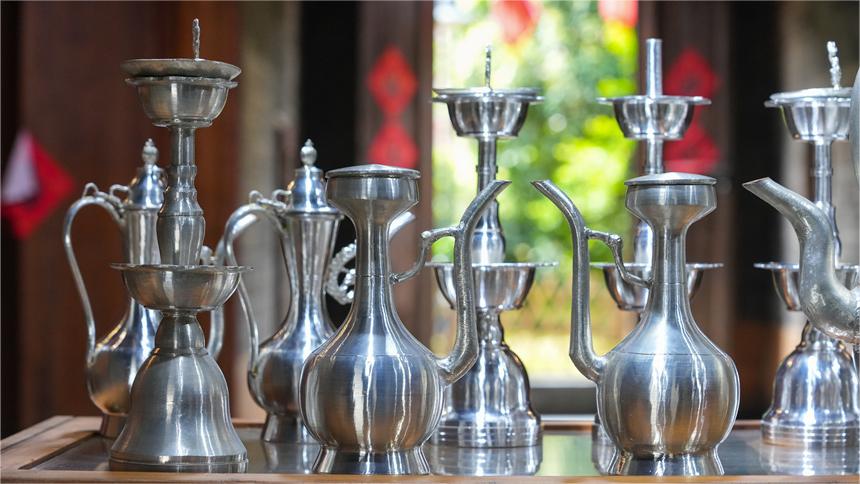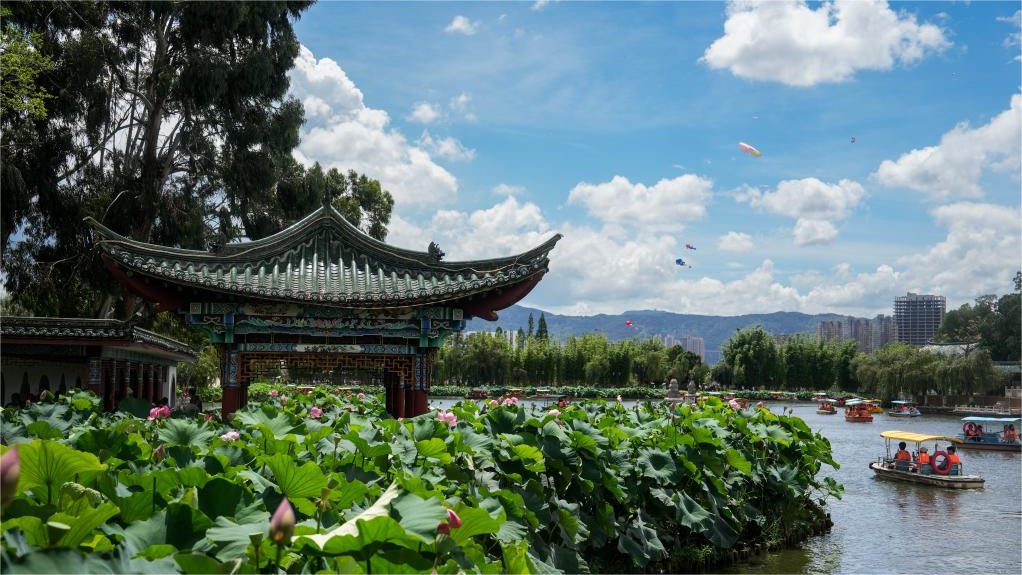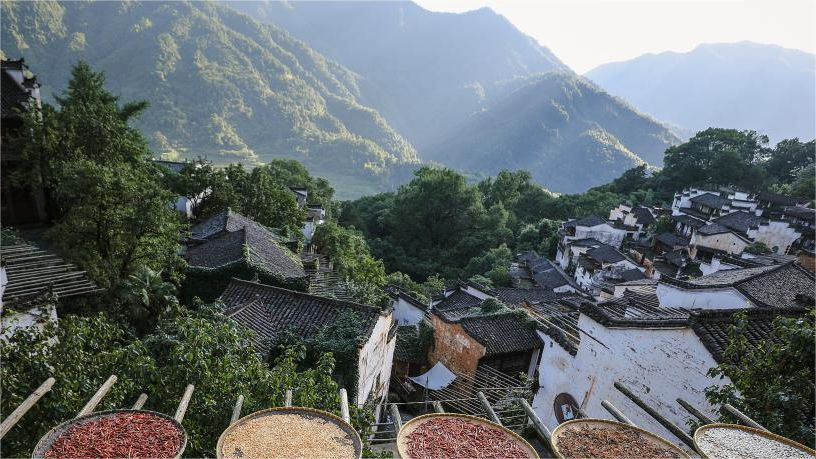Coffee industry brings prosperity to China's Xinzhai village
At the foot of the Gaoligong Mountains, southwest China's Yunnan Province, the Nujiang River rushes out from a canyon. In the morning of early autumn, sunlight pierces through the clouds, gently falling on Xinzhai village along the river, where vast expanses of coffee trees shimmer with a golden hue.
In 2023, we came to China to participate in the Seminar on Coffee Planting and Processing Technology for Developing Countries organized by China's Ministry of Commerce and the Yunnan International Center for Economic and Technical Exchanges. Our delegation set out from Baoshan city and after about an hour's drive, we arrived at Xinzhai village, famously known as "the first coffee village in China." Located by Lujiangba Valley at about 1,000 meters above sea level, it has the largest coffee plantation area among all Chinese administrative villages.
Wang Jiawei, Party chief of the village, warmly welcomed us at the village entrance early in the morning. He is affectionately dubbed the "coffee Party chief" by local coffee farmers for his pivotal role in the development of the village and its coffee industry.
According to Wang, Lujiangba Valley is the largest coffee-growing area in Baoshan, also the origin of Baoshan Arabica coffee. It has been growing coffee for half a century. Thanks to the ample sunlight and the typical dry-hot valley climate, the Arabica coffee produced there is strong and bitter, fragrant yet harsh with a slight fruity sourness, thereby enjoying a high reputation worldwide.
Stepping into Xinzhai village's coffee plantations, we were greeted by lush coffee trees laden with plump and appealing fruit. Farmers there were busy harvesting coffee cherries, with their faces radiant with true happiness. The clean and smooth asphalt roads in the village were well-connected, with trucks loaded with coffee beans shuttling between purchasing stations and plantations. Many tourists were drawn to the hillside of the Gaoligong Mountains by the charm of the four rustic yet exquisite coffee estates, eager to experience the local coffee culture.
While marveling at the village's development, we learned that it used to be an impoverished village without proper roads or communications facilities. The coffee industry there had been underdeveloped previously, leading to low productivity.
The village's past conditions brought to our mind the similar small villages in our home country Nepal, which were becoming increasingly desolate due to declining population. Therefore, we were intrigued by the remarkable development of Xinzhai village and ventured further to explore its path of transformation. After extensive observation and conversations, we unraveled the mysteries behind the village's progress.
Adopting region-specific planting methods to improve coffee yield and quality: The village divided its 500-plus households into nine groups, set up seven specialized farmers' cooperatives, and designated 13,600 mu (about 907 hectares) of land as the core coffee production area. The previously disorganized farming methods were thereby transformed into large-scale and standardized planting, shifting the industrial structure from extensive to intensive development.
Meanwhile, the village dedicated itself to selecting superior coffee varieties and nurturing high-quality seedlings, while also widely adopting smart agricultural techniques to improve coffee cultivation.
Deploying digital infrastructure to expand sales channels: During our conversations with local coffee farmers, we found that 5G signals had been extended to high-altitude coffee fields, allowing farmers to sell their coffee products via livestreaming in the mountains.
"Our Arabica coffee grows in the misty forests. Feel free to choose, come and pick!" On one livestreaming platform, a farmer was selling coffee to followers, patiently answering their questions and offering personalized coffee purchase advice.
Promoting the integrated development of coffee agriculture and rural tourism: Walking through the village, we saw beautiful coffee-themed murals adorning houses and alleys, with the enticing coffee fragrance wafting from a nearby coffee culture center. Upon stepping inside the center, we felt surrounded by a sea of coffee beans drying under the sun. We even experienced hand-brewed coffee with the help of a barista, and the mellow and refreshing flavor left us feeling carefree and uplifted.
In our view, Xinzhai village, which has boosted its economic growth by developing the coffee industry, exemplifies the successful implementation of comprehensive rural revitalization in China.
Throughout our visits to different parts of China over the years, we have been captivated by the picturesque progress of China's comprehensive rural revitalization. The policy support provided by the Chinese government has injected vitality into the industrial development of China's rural areas.
These experiences offer valuable insights for Nepal to advance its rural development. We are looking forward to visiting more Chinese villages in the coming future, bringing these development experiences back to Nepal to help more Nepalese farmers live a happy and prosperous life.
(Prakash Bikram Shan is an editor at the Anumodan National Daily of Nepal; Gyanendra Khadkha is a coordinator with nepalkhabar.com.)
Photos
Related Stories
Copyright © 2024 People's Daily Online. All Rights Reserved.









